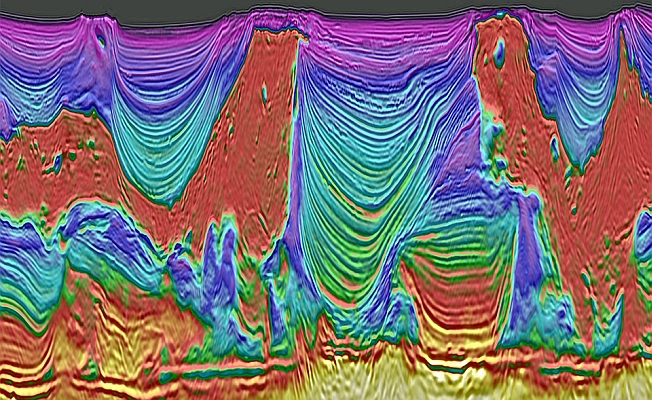Business needs geodata. As a result, there is huge market potential in open geodata. This is undisputed. The question is, though, whether demand has been growing since increasing numbers of authorities have been publishing their data on the internet – sometimes for free use. The jury is still out. At INTERGEO in Berlin, the business potential of open geodata also has a firm place among the issues on the conference programme. You can look forward to intensive discussion and in-depth information on Thursday, 9 October 2014. 
The municipal authorities in Bonn are still very much in the early stages of open data, but the city council’s ruling of 30 January 2014 has set it on a clearly defined path. Sven Hense, project manager for e-government and head of Bonn’s open data coordination office, is very much involved. He explains that the city council is working to expand the content of the open data portal established in May. In a survey conducted beforehand to discover what kinds of data should be made available to the public, geodata came out top by a mile, says Hense. “Georeferencing was the reason given most often for wanting data.”
Significant run on data
The surveying authority in INTERGEO 2014’s host city of Berlin is a few steps further on in terms of open geodata. Along with Hamburg and Bremen, the capital is considered to be one of the driving forces when it comes to disseminating open geodata – making it available to all, for any purpose and free of charge. And Thomas Luckhardt from Berlin’s senate administration sees this open data strategy as an opportunity to make open geodata useful for business, too. “There was a great run on the open data after we released it last year,” says the manager responsible for department III – geoinformation at the senate administration for environment and city development. It has yet to be precisely determined who is accessing what data. However, Luckhardt affirms that the data is being used much more frequently than before. “The prices, and pricing models that were sometimes difficult to understand, were definitely one of the reasons that contributed to hesitancy among customers before,” says Luckhardt.
Framework conditions still not perfect
Prices and pricing structures, licences and licensing models, data protection issues and also the issue of locating open geodata are obstacles that are preventing geodata from reaching business. Lars Behrens, deputy manager of the office of the GeoBusiness Commission (GIW Kommission) comes to the following conclusion: “More and more authorities are putting what geodata they have on the internet, but demand from business still leaves a lot to be desired.” So is the oft cited assertion at the beginning of this piece about business capitalising on geodata perhaps not true at all? “Oh, it most certainly is true,” says Behrens. He adds that business gains enormous added value by using geodata, but that the framework conditions are not yet perfect. It seems as if the growing number of portals for open geodata and the ongoing discussions about licensing models and data protection conditions is causing increasing uncertainty among companies, he continues.
However, there are positive examples. Among the best-practice projects initiated by the GIW Kommission are applications in forestry, real estate, healthcare and raw materials. In all of the lead projects, the GIW Kommission was able to show that geodata can deliver a high level of added value for business. If that is, the data is provided in such a way that the companies can work with it.
Learning from others
Sven Hense of the open data coordination office in Bonn now has the crucial advantage that he can talk to other players and further develop the content of open data. “Through targeted cooperation, we will raise awareness about the data portal among companies in the region,” says Hense. Targeted approaches, enquiring about needs, raising awareness and initiating dialogue with companies – these are the steps that will fully exploit the business potential of geodata. It remains to be seen whether these activities will be sufficient to fully develop the potential of geodata. “We have to bring business along, that is certain,” says Hense.
You can follow the debate about open geodata live at INTERGEO in Berlin. The programme includes a keynote speech on the “Market potential of open geodata”, given by Brigitte Zypries, State Secretary at the German Federal Ministry for Economic Affairs and Energy, on Thursday morning in the New York room. This issue will then be discussed in more depth at a GIW Kommission session. You can look forward to an intensive discussion and in-depth information at INTERGEO in Berlin.






